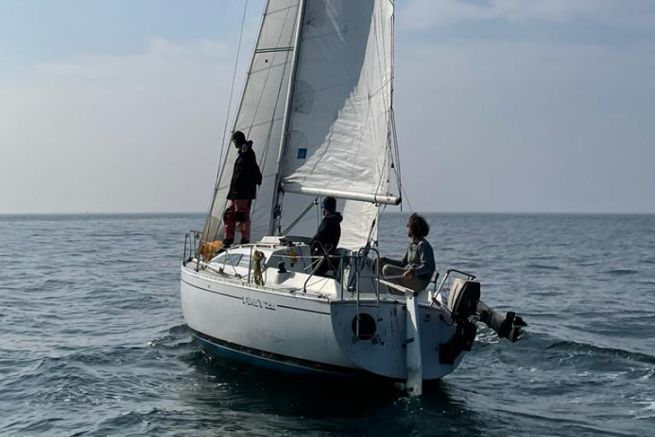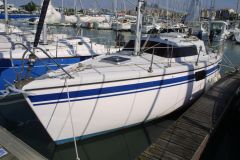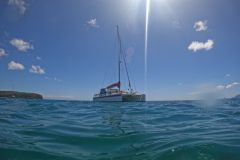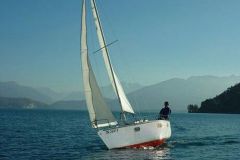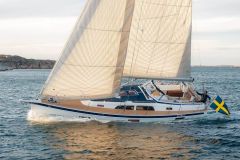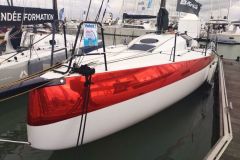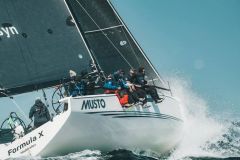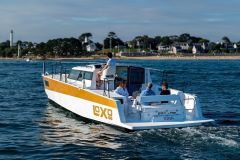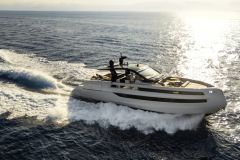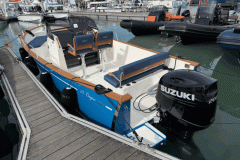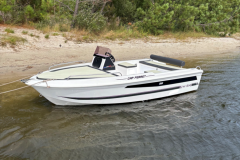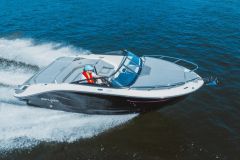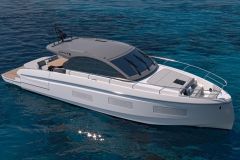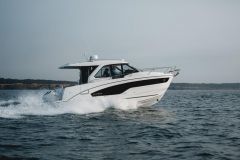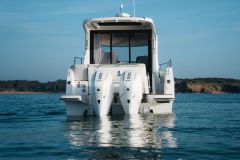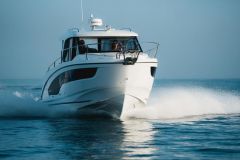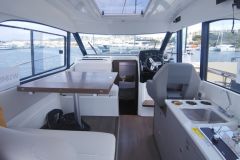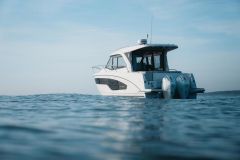A second-hand sailboat to fill the space in port
8 years after making the request, Gilles was informed of a vacancy in Concarneau's inner harbor. He then set about looking for a sailboat, with the constraint of measuring around 8 meters, with a maximum draught of around 1.4 meters. Gilles explains: "I visited a number of boats: Tequila, Gibsea80, Surprise, but it's a bit complicated to live aboard. The First 24 and 25 are finally a First 26 from 1986, the year I was born, which my girlfriend and I bought in Lorient for ?7,000 as part-owners."
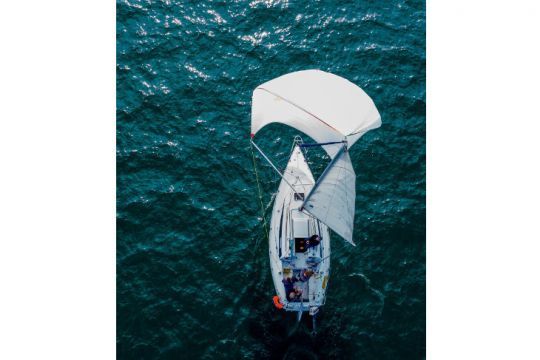
A livable sailboat for family cruising
Designed by Finot Conq, the First 26 was built between 1984 and 1991, and like the rest of the series was a great success. With an overall length of 8.20 meters and 7.00 meters at the waterline, and a beam of 2.80 meters, it is available in fixed keel and lifting keel versions. This is the case of Charly gilles' sailboat, enabling him to reduce his draught to 85 centimetres.
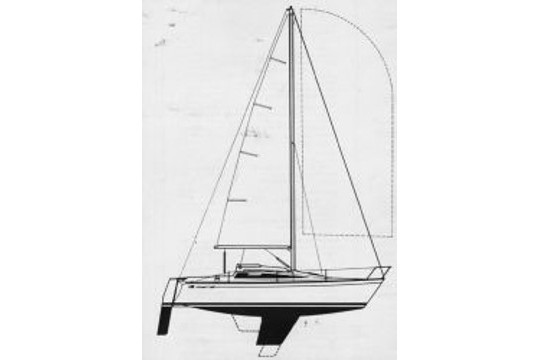
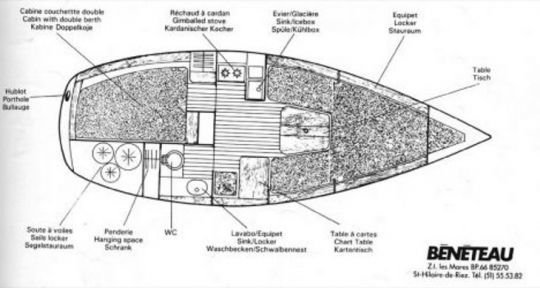
The interior layout features a truly separate aft cabin to port, with a door. On the starboard aft side, a toilet is located aft of the chart table, which mirrors a small L-shaped galley. A saloon and a Breton bed are located in the forepeak.
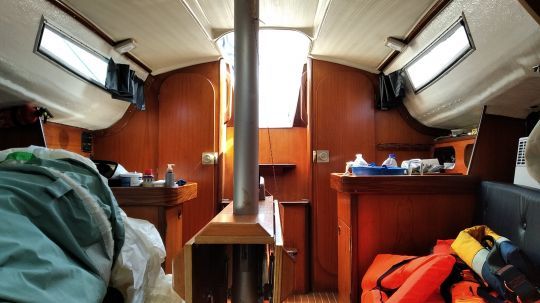
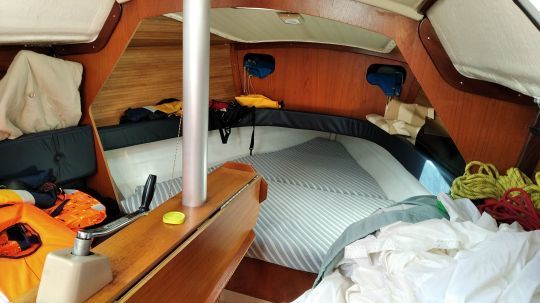
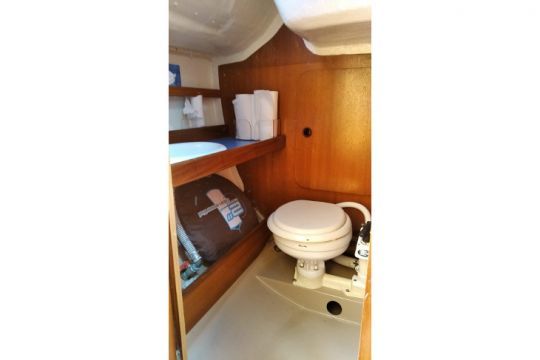
Gilles underlines the importance of this provision for family cruising: "We often sail with 4 people: 2 adults and 2 children. In the First 25 we visited, with the toilets at the front of the mast, there was only a coffin berth aft. First 24 was really small. On the First 26, the enclosed cabin means we can have different times, and not all have to go to bed at 9 p.m. with the kids."
Work to equip the boat
When he bought it, Charly was only equipped for coastal sailing for less than 6 miles. There was no speedo, log, depth sounder or VHF. Gilles explains that he had to invest a little, even though some useful work had already been done: "The previous owner, a priori the 4th since the boat was built, had already removed the peeling upholstery, as was often the case with those of the period, and scraped everything off. He repainted part of the boat with polyurethane paint and put wood lath in other places. He also changed the keel system, salvaged from a wrecked First 26. This explains the somewhat high price, despite the limited equipment. The 2-stroke outboard works well, and I preferred it to an inboard version with the risk of having to change an old, rinsed engine. We added around ?3,000 for equipment, adding solar panels, a VHF and a tricolored LED light at the masthead. We changed the furling genoa to a forestay and bought some sails to do a bit of racing."
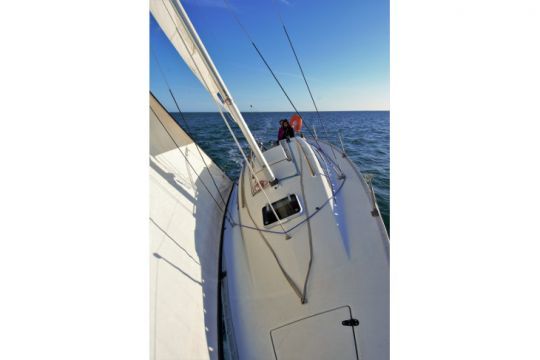
A real cruise race
Although he still has some work to do, such as adding a tiller autopilot, Gilles is satisfied with his purchase: "It's a good compromise between habitability, sailing performance and draught for beaching in Les Glénan or on the river. It's very good in light air downwind. We saw it on the Tour du Finistère. If we have to make a few criticisms. I'm 1.85 meters tall and I'm a bit contorted. I can only stand upright at the foot of the descent. The cockpit is a bit small for more than 3 adults, and the boat can be a bit fiery and physical with its non-compensated rudder on the transom. You have to cut back quickly upwind, from 15 knots, with the old-fashioned rig with heavy overlap. On the other hand, with the 15 m² inter, you'll be sailing for a long time after that. In conclusion: This is a real cruiser-racer, affordable, family-friendly."

 /
/ 